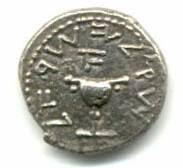Obeying stop signs is no longer optional in the city, and police now are pulling over motorists for violations like cracked windshields or busted tail lights.It appears that Chief Evans is using the very effective Broken Windows Theory of crime prevention - cracking down on small infractions that leads to busts for large ones, and increasing deterrence as a result.
Detroit police often overlooked such infractions in the past, but Police Chief Warren Evans has ordered officers on his Mobile Strike Force to stop motorists in high-crime areas for any legal reason in hopes of finding unregistered guns.
In addition, officers on the strike force, made up of specialized units like the Gang Squad and the Fugitive Apprehension Team, are knocking on doors of known parole and probation violators and their relatives in high-crime areas.
The tactics have been credited with cutting crime and getting guns off the street, but civil rights advocates say the aggressive policing may be crossing the line and has led to an increased number of civilian complaints against the department.
Of course the criminals aren't happy about it:
We're asking officers to make legal stops of cars that look suspicious that have broken traffic laws," Evans said. "Is that too much to ask?"Considering the city is about 90% African American (As is Chief Evans btw) and young men do commit the disproportionate share of crime so I guess the non-politically correct answer to such a stupid question is "Statistically speaking, yes indeed".
But Ron Scott, director of the Detroit Coalition Against Police Brutality, said Evans' approach could lead to racial profiling or other abuses. "What do they deem suspicious -- young African-American men who happen to be driving in a high-crime area?" he said.
Evans insists his methods are working. Detroit police confiscated 20 percent more unregistered firearms in 2009 over the previous year, 2nd Deputy Chief John Roach said. Cocaine seizures are up 479 percent, while there has been a 115 percent increase in the amount of heroin confiscated during that time, Roach said.And of course increased citizen complaints from the thugs and thug-lites that get nabbed -
Meanwhile, murders have dropped since Evans took over. There were 379 homicides in Detroit last year, up from 375 in 2008. But in the first six months after Evans became chief in July 2009, there were 179 murders in the city -- a 20 percent decline from the same period in 2008.
Evans said the approach is a significant reason for the drop in homicides, because it is getting violent criminals off the street.
"If you stop someone for a traffic violation it often leads to other things," Evans said.
But there also has been an uptick in citizen complaints since Evans took over as chief in July. There were 1,732 citizen complaints to the Detroit Board of Police Commissioners in 2009, down from the 1,736 complaints logged in 2008, according to figures released by the police commission. But during the second half of 2009 -- Evans' first six months as police chief -- the commission received 10 percent more citizen complaints over the same period in 2008.Then again, they're complaining that the Detroit Police Department is actually enforcing the law in the City of Detroit -
During a Feb. 26 night patrol, Evans and Jones pulled over eight vehicles. Violations ranged from broken windows to failing to obey stop signs. Of the eight vehicles stopped, only two had the required paperwork: driver's license, registration and proof of insurance. One motorist was in possession of an unregistered gun, which was confiscated. Another stop netted a carload of teenage boys smoking marijuana. They told police they were headed to a strip club.Its certainly time that Detroit followed the lead of New York and LA in adopting real effective law enforcement.
Griffin said he recently rode along with a Mobile Strike Force crew. "Every person they stopped, whether it was for a broken headlight or whatever, they asked the question, 'Do you think you'd get away with this if you were driving in the suburbs?' And every one of them said no.
"So they knew they were breaking the law," Griffin said. "They just thought they could get away with it in Detroit."
Until Detroit gets crime and corruption under control it is not going to even have a chance at a real recovery.
Kudos to Chief Evans for trying to tackle the crime problem using some proven and effective methods.

No comments:
Post a Comment